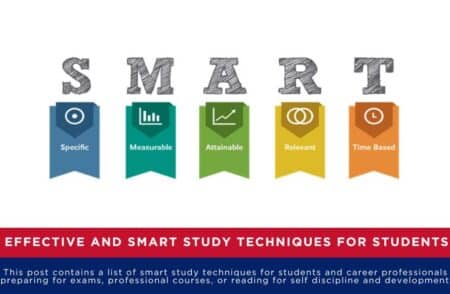Are you looking for answers on how to manage stress and anxiety as a student?
Student life, though rewarding, often comes with its own set of challenges. In the bustling world of academia, stress and anxiety can become unwelcome companions, affecting mental well-being.
We are live on Twitter! Join our fast-growing community of scholars on X!@ngscholarsworld
— Scholars World (@ngscholarsworld) November 11, 2023
Kindly follow us, like, and share our posts to help reach a larger audience. #Scholarship #UK #EducationUSA
Shocking statistics from the 2021/22 academic session in the U.S. reveal that 44% reported symptoms of depression, 37% faced anxiety disorders, and 15% contemplated suicide.
This sheds light on the pressing need for effective stress management strategies, particularly for self-sponsored students juggling work and academics.
In this piece, we have compiled practical tips on how to manage stress and anxiety as a student in order to enhance the overall learning experience.
Causes of Student Stress
Navigating the intricate landscape of student life is a journey marked by challenges, and understanding the root causes of stress is pivotal for effective management.
The following factors contribute significantly to the stress experienced by students:
1. Academic Pressure:
The pursuit of academic excellence is a noble endeavor, but the pressure to perform well in exams, assignments, and overall coursework can become overwhelming.
Fear of failure, tight deadlines, and high expectations contribute to heightened stress levels.
2. Relationships:
Students often grapple with the complexities of interpersonal relationships.
Whether it’s conflicts with peers, romantic entanglements, or strained family dynamics, the social dimension of student life can be a significant source of stress.
3. Uncertainty about the Future:
The looming uncertainty of what lies beyond graduation can induce stress.
Career choices, job prospects, and the transition from academia to the professional world create a sense of apprehension about the future.
4. Financial Strain:
For many students, the financial burden of education, coupled with the cost of living, adds an extra layer of stress.
Juggling work and studies to make ends meet can be physically and emotionally taxing.
5. Social Challenges:
Adapting to a new social environment, making friends, and dealing with social expectations can be daunting.
Feelings of isolation or not fitting in can contribute significantly to stress.
6. Extracurricular Demands:
While extracurricular activities are enriching, the demands they place on students’ time and energy can lead to heightened stress.
Balancing academic commitments with club activities, sports, or other pursuits can be challenging.
7. Transitions:
Major life transitions, such as moving out, living independently, or graduating, are inherently stressful.
Adjusting to new environments and responsibilities can be emotionally taxing.
Understanding these causes allows students to devise targeted strategies for stress management, creating a more supportive and balanced academic environment.
Signs of Stress and Anxiety in Students
Identifying the manifestations of stress and anxiety is crucial for timely intervention.
Johns Hopkins University outlines key characteristics that students may exhibit when experiencing heightened stress levels:
1. Constant Worrying:
Persistent and excessive worrying about academic performance, relationships, or the future can indicate heightened stress levels.
2. Feeling Nervous:
A general sense of nervousness, unease, or restlessness may be indicative of underlying stress and anxiety.
3. Restlessness:
An inability to relax or sit still, even in non-demanding situations, can be a physical manifestation of heightened stress.
4. Tiredness:
Chronic fatigue and a feeling of exhaustion, even with sufficient rest, may be linked to elevated stress levels.
5. Difficulty Concentrating:
Stress can impair cognitive function, leading to difficulties in focusing, processing information, and retaining knowledge.
6. Forgetfulness/Mind Going Blank:
Stress can impact memory, leading to forgetfulness or a feeling of one’s mind going blank, especially during crucial moments.
7. Sleep Problems:
Insomnia, restless sleep, or disturbances in sleep patterns can be indicative of stress and anxiety.
8. Muscle Tension:
Physical manifestations of stress may include muscle tension, headaches, and other psychosomatic symptoms.
9. Stomachaches:
Digestive issues, such as stomachaches or gastrointestinal discomfort, can be linked to heightened stress levels.
10. Pain:
Stress can contribute to the experience of physical pain, including headaches, body aches, and tension in various parts of the body.
Recognizing these signs empowers students and those around them to offer support and intervention when needed, fostering a more compassionate and understanding academic community.
Tips on How to Manage Stress and Anxiety As a Student
1. Sleep Well:
Inadequate sleep leads to poor grades, health issues, and heightened stress. Prioritize a regular sleep schedule to maintain effectiveness and mental well-being.
2. Exercise Regularly:
Incorporate regular exercise into your routine. Whether it’s a gym session, a brisk walk, or cycling to class, physical activity positively impacts mental health.
3. Have a Support Network:
Cultivate a support system. Surround yourself with friends who encourage and understand. Sharing your concerns lightens the load and provides valuable perspectives.
4. Identify and Reduce Your Stressors:
Recognize stress triggers and take steps to minimize or eliminate them. Seek assistance for challenging subjects, attend workshops, and engage in social activities to divert your mind.
Explore more scholarship opportunities below.
5. Adopt a Healthy Eating Lifestyle:
Your diet affects your overall well-being. Swap junk food for fruits, maintain regular eating habits, drink enough water, and reduce caffeine and alcohol intake.
6. Engage in Stress-Reducing Activities:
Incorporate stress-relieving activities into your schedule, such as progressive muscle relaxation, listening to music, deep breathing, and taking short breaks.
How to Mange Stress and Anxiety As a Student
7. Proper Time Management:
Organize your schedule, prioritize tasks, and adopt time-blocking techniques. Set boundaries, eliminate time-wasting activities, and use tools like Google Calendar for efficient planning.
8. Go for Medical Check-ups:
Regular medical check-ups are crucial for maintaining overall health. Schedule routine check-ups to detect and address any health concerns promptly. Physical health is intertwined with mental well-being.
Affordable Foods for Stress Relief
Students often face budget constraints, but incorporating stress-relieving foods into their diet doesn’t have to break the bank. Here are some affordable options with brief highlights:
– Oats:
Rich in complex carbohydrates, oats help boost serotonin levels, promoting a sense of calmness and well-being.
– Bananas:
Packed with potassium, bananas aid in regulating blood pressure, reducing stress and anxiety.
– Nuts:
Almonds, walnuts, and pistachios are rich in omega-3 fatty acids, known to reduce stress levels.
Affordable Foods for Stress Relief (Cont'd)
– Dark Chocolate:
Containing antioxidants, dark chocolate stimulates the production of endorphins, providing a mood lift.
– Oranges:
High in vitamin C, oranges help lower cortisol levels, reducing stress and boosting the immune system.
– Greek Yogurt:
Probiotics in Greek yogurt promote gut health, positively influencing mood and stress response.
– Leafy Greens:
Spinach, kale, and other leafy greens are rich in magnesium, which helps regulate cortisol levels.
– Chamomile Tea:
A soothing beverage, chamomile tea contains antioxidants that can have a calming effect on the nervous system.
Conclusion
In conclusion, prioritizing overall health and well-being is essential for a successful student life.
Managing stress effectively and adopting strategies for a balanced and fulfilling academic journey are crucial.
Remember, your well-being matters, and taking intentional steps to maintain it will contribute to a more rewarding educational experience.
By incorporating these tips on how to manage stress and anxiety as a student, while adding affordable stress-relieving foods into your daily routine, you can navigate the challenges of student life with resilience and emerge stronger on the other side.




















